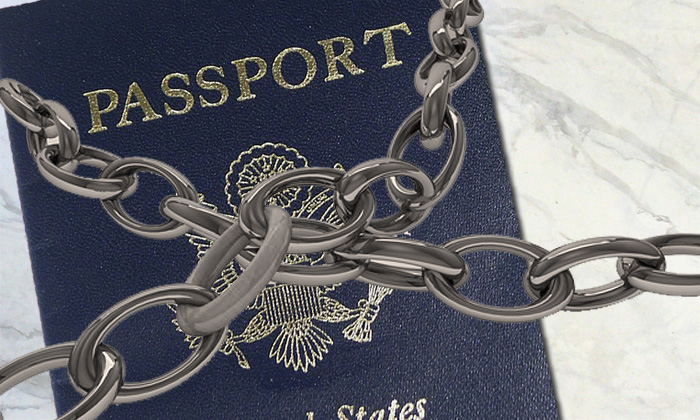Your passport is a precious document — it’s important to keep your passport safe from loss or theft! Now, if the worst happens and your passport goes missing, G3 can get you a replacement passport in as little as two business days. But it’s worth the effort to try to protect your passport from harm. Today, we’ll look at the most common ways that passports get lost or stolen, and how you can keep your passport safe!
Protect Your Passport from Getting Lost
Every year, far more passports are lost than are stolen. It’s expected that more than 200,000 Americans will report the loss of their passport this year!
Follow our tips to make sure you don’t become part of that number.
1. Keep Your Passport Safe at Home
At G3, we’ve heard a lot of stories of how passports got lost. By far, the most common scenario is that passports are misplaced at home!
Make sure to designate a secure spot to store your passport, and make it a place that you can remember! A fireproof box or filing cabinet are good options to store your passport between trips. The most important thing is to always return your passport to the same storage spot. No matter how tired you are when you get home from a trip, put your passport away as soon as you get in! Don’t leave it in your bag or your jacket, where you might forget it.
2. Keep Your Passport Safe When Moving
We’ve also had many travelers tell us that their passports were lost when they were moving house. It’s understandable — moving is a major endeavor, with a lot of stuff to keep track of! But when you need your passport to travel, you don’t want it to be just “in a box somewhere.”
As you pack, set aside a special box for your most important documents, such as passports, birth certificates, and financial records. Make this one of the items that you move yourself, rather than packing it on a moving van. Once you get to your new home, find a secure spot to store your passport and other key papers.
3. Keep Your Passport Safe While Traveling
The one time you can’t keep your passport securely tucked away is while you are traveling! We’ve also known travelers to misplace their passports while they are in transit. At the airport, you’ll need to pull your passport out many times. Choose a place to keep your passport where it will be accessible but secure from falling out and getting lost. For instance, it’s much safer to keep your passport in a deep inner pocket of your jacket than a shallow front pocket. Put it back in that safe spot every time, and you’ll save yourself a lot of frantic pat-downs!
Protect Your Passport From Theft
Passport thefts are far less common than lost passports, but they do happen. Although it’s not unknown for thieves to specifically try to steal passports, most passports are stolen by thieves who are quickly trying to grab your money or other valuables. In a British Government survey of tourists who had their passports stolen, 40% of thefts were bag snatchings!
Here are some tips to keep your passport safe from being stolen:
- At home, keep your passport in a locked cabinet, or hidden away from other valuables.
- When traveling, keep your passport separate from your wallet. Consider keeping it in the safe in your hotel room rather than carrying it.
- Do not carry your passport in your back pocket or in the outer pocket of a backpack, where it would be an easy target for pickpockets.
- For maximum security when carrying your passport, use a traveler’s wallet that is kept under your clothes.
- If you carry your passport in your bag, keep a close eye on your bag. Don’t leave it slung over the back of a chair. In areas with a higher level of street crime, consider carrying your bag cross-body rather than over your shoulder.
- Take particular care when you are in crowded tourist spots or on public transportation.

